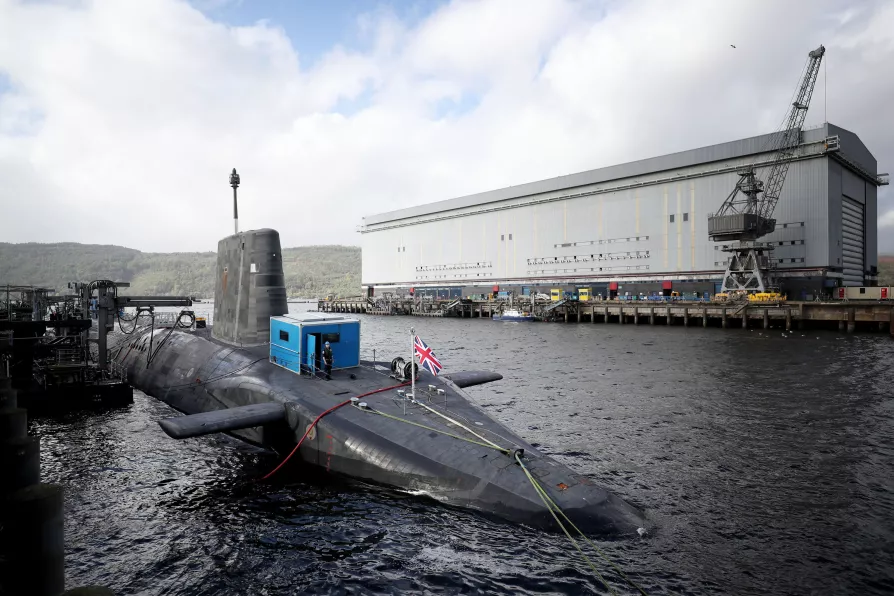
 The Vanguard-class nuclear deterrent submarine HMS Vengeance at HM Naval Base Clyde, Faslane, September 29, 2017
The Vanguard-class nuclear deterrent submarine HMS Vengeance at HM Naval Base Clyde, Faslane, September 29, 2017
INCREASINGLY long patrols due to Britain’s ageing fleet of nuclear-armed submarines is ratcheting up the risk of a catastrophic accident, a retired navy commander has warned.
Rob Forsyth captained the nuclear-powered but conventionally armed hunter-killer submarine HMS Sceptre from 1977 to 1979.
He said greater pressure on ageing equipment, coupled with the psychological strain on crew members, could lead to disaster; a rusty HMS Vengeance was spotted returning to port at Faslane at the weekend after 201 days on patrol.
Tours on the previous generation of nuclear-armed subs rarely exceeded 60-70 days, but in the past few years stays on the Vanguard fleet have regularly exceeded 150 days, with two patrols having been in excess of 200 days.
Commander Forsyth, who retired from the Royal Navy in 1980 to pursue a career in industry and now campaigns against Trident, said Britain is approaching the stage of having to ask whether it is possible to maintain a continuous deterrent.
He said both boats and people are being put at risk as a new generation of submarines is not expected to become operational until at least the early 2030s.
“All the boats are past their design life now, which means they are more liable to technical failure,” Comm Forsyth told the Sunday Post.
“I was at sea in Polaris boats and we used to reckon three months was the longest for keeping your sanity.
“My generation find the concept of six months almost unbelievable. It must be having an effect on at least some of the people.
“I believe there will be some form of lasting mental damage.”
Patrols often mean working without days off, showering for 20 seconds every two days and communication from home coming via a 120-word correspondence received once a week.
CND general secretary Kate Hudson said: “We’ve entered a dangerous new normal where increasingly shaky subs and their crews are enduring patrols in excess of six months. This should be a matter of concern for us all.
“Time must be called on this crumbling and wasteful project that puts us all at risk. With an election looming, we call on supporters to make scrapping nuclear weapons and using the money to rebuild our public services an issue on the doorstep.”
The Royal Navy said: “While we do not comment on patrol lengths, we take safety very seriously, and all submarines go through rigorous safety checks before any patrol.”

Civil servants slam Starmer over continued support for Israel

Civil servants fear for their jobs following pledges to expand AI use















